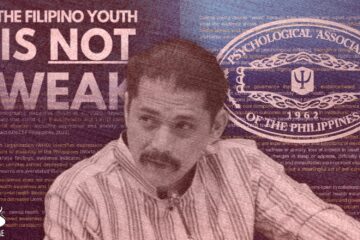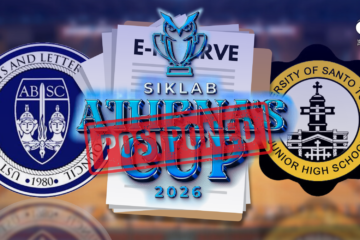by MATTHEW DAVE A. JUCOM
UNIVERSITY RECTOR Fr. Richard Ang, OP urged Thomasians to seek the guidance of the Holy Spirit to find hope amid struggles during the Mass of the Holy Spirit, held Monday.
“Let us ask the holy spirit to visit afflicted hearts to revive them, darkened minds to illuminate them, and to feel the lives of each of us in a way that turns each of us to a flame of hope,” said Ang in his homily.
Ang also said that the statement “we are only as good as our struggles and weaknesses,” is a lie as everyone was made powerful and stronger through the blessings of the Holy Spirit.
The Holy Spirit has transformed people for the mission to reshape the lives of others as well, the rector said.
“May we be enlightened to know the truth, and may we be enkindled to practice charity—Veritas in Caritate,” Ang added.
Apostolic Nuncio to the Philippines Archbishop Charles Brown, through Ang, formally opened the academic year 2021-2022, while commending the University for an education that guides toward the truth.
“To relentlessly, courageously, and consistently seek the truth and communicate the truth. That is the beauty of the catholic education, and that is the specific beauty of the Dominican education… this is what a Catholic University like yours does, it provides the way that leads to truth,” Brown said in a letter read by Ang.
Brown supposedly presided over the mass but he was unable to attend due to the pandemic restrictions.
Medical education continuity through people-centered leadership
Meanwhile, a people-centered leadership has allowed The Faculty of Medicine and Surgery to overcome the challenges of the educational continuation brought by the COVID-19 pandemic, the dean said Monday during the Discurso de Apertura.
Asst. Prof. Ma. Lourdes Domingo-Maglinao said that her people-centered leadership focused on innovation through adapting the virtual modality of learning, and collaborative effort within the faculty staff and administration has provided effective learning for UST medical students.
“Perhaps the pivotal insights I gain from this crisis is a people-centered leadership that focuses on the soft skills of leadership like adaptive innovation, team coalition, and interdependence,” Maglinao said.
Maglinao narrated that during the height of the pandemic, the Faculty faced several uncertainties and immense limitations to some essential medical practices and assessments such as the clinical clerkship.
Battling with these limitations, the dean said that they have taken the risks to adapt the virtual mode of instruction in conducting these assessments.
“One of the challenges that it presents was prioritizing our learners’ and staff’s safety, health, and wellness while ensuring the integrity and continuity of the medical education process, and generating uncompromised learning outcomes,” Maglinao said.
“Our clinical clerkship, by far, is the most affected. What [was supposed to be] a 12-month hospital rotation turned into a virtual clerkship experience,” the medical professional said.
She also said that another challenge was to help the students, faculties, and families who do not have access to information and communication technology.
“However, we also acknowledge that we needed to support the learners, the faculty, and their family during these pandemic times [because] not all of them have the same access to information and communication technology, which vary across different areas of the country,” Maglinao said.
She then urged various academic medical leaders to “harness the collective wisdom of all faculty and come up with a strategic alternative” for these medical exercises.
The Mass of the Holy Spirit and the Discurso de Apertura were live-streamed through the University’s official Facebook page. F



